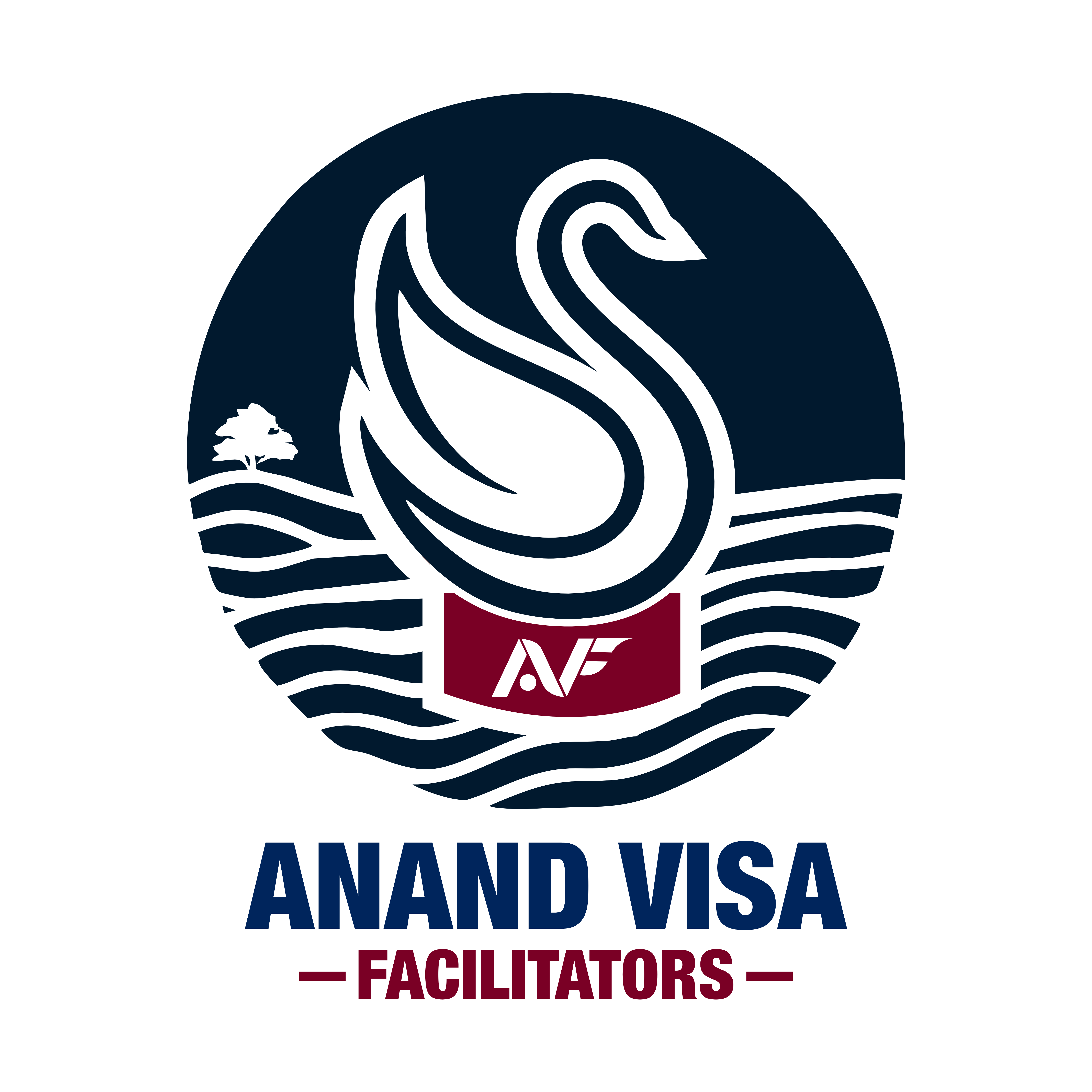
By - AVF Consultant
Millions of individuals apply for tourist visas to Canada each year in order to visit family and friends or to take in the breathtaking scenery, energetic cities, and rich cultural legacy of the nation. However, obtaining a visiting visa might occasionally be more difficult than expected, even with Canada's fascination. Many applicants are rejected for reasons they may not completely comprehend, and the application process might be complicated.
We've listed the top 10 reasons why a tourist visa to Canada is denied, along with advice on how to improve your chances of getting your application approved, to help you avoid the typical mistakes.
1. Incomplete or Incorrect Application Forms
One of the most common reasons for visa denial is submitting an incorrect or incomplete application. Even apparently trivial mistakes—like omitted information, inaccurate addresses, or inconsistent dates—can lead to considerable delays or a complete refusal. It’s essential to thoroughly complete each section of the application form, making sure that all information is correct. Verify all details thoroughly before submitting to prevent any mistakes that might endanger your application.
2. Insufficient Supporting Documentation
A primary cause for visitor visa denials is the lack of sufficient or appropriate supporting documents. The Canadian immigration officials must be assured that you possess legitimate motives for traveling and will go back to your country after your visit. Typical necessary paperwork consists of:
Evidence of financial stability: Bank statements, tax returns, or sponsorship letters.
Travel records: Proof of previous overseas journeys.
Connection to your home country: This encompasses evidence of employment, property ownership, or familial responsibilities that show your intention to return.
Not supplying sufficient documentation may raise questions about your motives, heightening the chances of rejection.
3. Inability to Prove Financial Stability
Canada’s visitor visa program mandates that applicants demonstrate adequate financial means to pay for their travel expenses. Immigration officials seek evidence that you have the means to cover your travel, lodging, and everyday costs without engaging in unauthorized work. You ought to incorporate documents that support, such as:
- Latest bank statements
- Payment records
- Tax documentation
Applicants unable to demonstrate their financial capacity might encounter a rejection, as immigration officials may doubt their ability to remain in Canada without financial hardship.
4. Unclear Travel Purpose or Lack of Travel History
Your visit to Canada must have a well-defined and documented purpose. It may raise questions about why you are traveling abroad if you have little to no prior experience doing so. Applicants must explicitly identify their goals, including travel, business, or family visits, and provide supporting documentation. For example, submitting a thorough itinerary, airline reservations, or an invitation letter from a Canadian host can strengthen your application.
5. Vague or Incomplete Travel Itinerary
A travel itinerary that is poorly structured or lacking details is another frequent cause of visa denial. Immigration officials anticipate a clear plan outlining how you intend to utilize your time in Canada. A good itinerary must contain confirmed hotel bookings, flight tickets, and a plan of the locations you intend to explore. When visiting family or friends, make sure to obtain a formal invitation letter from them.
6. Lack of Strong Ties to Your Home Country
One of the critical aspects of a successful visitor visa application is demonstrating that you have strong ties to your home country. Immigration officers need to believe that you will return after your visit. This could be supported by showing:
- Employment status (e.g., a letter from your employer)
- Property ownership
- Family obligations
Without such evidence, you may be seen as a potential immigrant, leading to a refusal.
7. Providing False Information or Fraudulent Documents
Presenting fake documents or offering incorrect information is a serious offense that may result in visa denial and potential future bans from Canada. Immigration officials are trained to spot inconsistencies or forged documents, and any attempt in this area can significantly impact your chances of securing a visa in the future. Always confirm that your documents are authentic, and avoid overstating your case.
8. Medical Inadmissibility
Certain medical conditions can render you inadmissible to Canada, particularly if they pose a risk to public health or safety. Applicants with medical issues should ensure they provide complete medical records and, if necessary, undergo medical exams to demonstrate they pose no threat. If you have a medical condition, it’s important to address any concerns upfront in your application.
9. Criminal Inadmissibility
Applicants with criminal records could face refusal if their past offenses are considered a risk to public safety in Canada. Immigration authorities conduct detailed background checks to assess an applicant's criminal history. If you have a previous conviction, it's crucial to be transparent and provide supporting documents that demonstrate your rehabilitation, such as proof of completion of a rehabilitation program or a pardon.
10. Overstaying Previous Visas
If you have a history of overstaying a previous Canadian visa or violating any visa conditions, this will significantly affect your chances of receiving a visitor visa in the future. Immigration officials will check your previous travel records, and any instances of non-compliance can result in a refusal. Ensure that you follow the terms of your visa on all previous visits to maintain a clean record.
How to Improve Your Chances of Success
While securing a Canadian visitor visa may seem daunting, there are several steps you can take to maximize your chances of approval:
- Double-check your application: Ensure all forms are completed accurately, and all necessary documents are included.
- Provide complete financial and supporting documents: This includes recent bank statements, proof of employment, and any other relevant paperwork.
- Clarify your travel purpose: Provide a well-detailed itinerary and evidence of your ties to your home country.
- Be honest: Never provide false information, as misrepresentation can lead to long-term consequences.
Conclusion
Although applying for a tourist visa to Canada might be a complex process, you can significantly increase your chances of being granted one by being well-prepared and careful. You may ensure that your application meets the necessary requirements by being aware of the main causes of rejections and following the rules.
AVF Consultant can help if you need specialized support and expert guidance. Our knowledgeable staff of professionals is available to help you at every stage, guaranteeing a smooth and stress-free trip to Canada.


